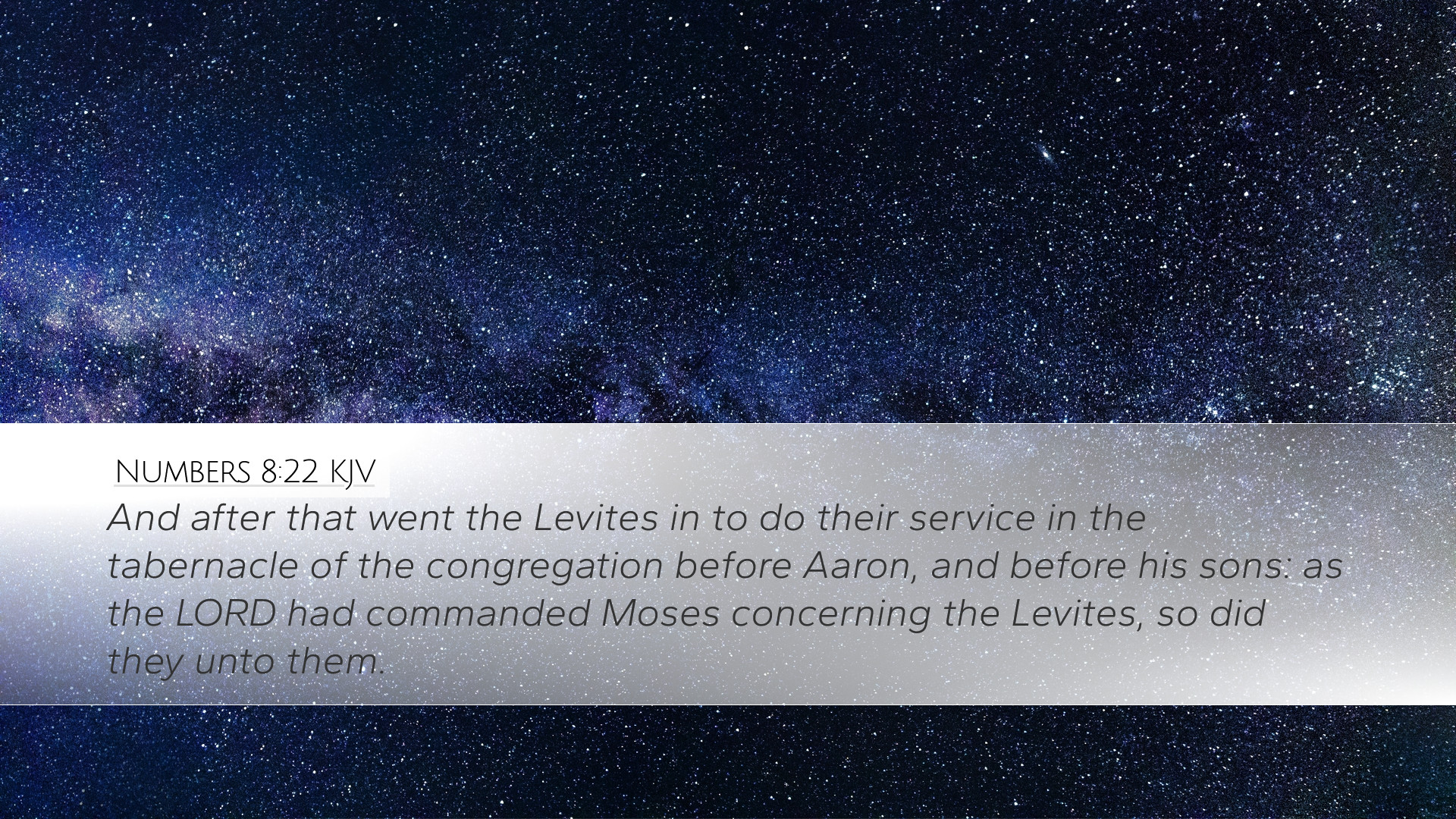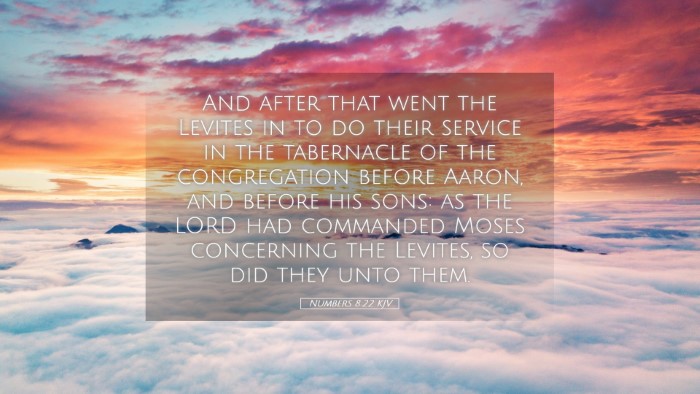Commentary on Numbers 8:22
Numbers 8:22 states, "And after that went the Levites in to do their service in the tabernacle of the congregation before Aaron, and before his sons: as the LORD had commanded Moses concerning the Levites, so did they unto them." This passage highlights the importance of the Levite's service in the ministry of the tabernacle, symbolizing obedience and divine order in worship.
Introduction
The context of this chapter revolves around the consecration of the Levites, who were set apart for the ministry of the tabernacle. This commentary draws upon insights from Matthew Henry, Albert Barnes, and Adam Clarke, aiming to elucidate the theological significance of their service.
The Nature of Levite Service
The Levites were chosen by God to serve in the tabernacle, a holy place where His presence dwelled. Their role was vital for the spiritual life of Israel, as they facilitated worship and the sacrificial system. This passage reiterates fulfilling God's commandments regarding their service, emphasizing:
-
Obedience: The expression "as the LORD had commanded" reflects the Levites' submission to divine authority. Matthew Henry observes that obedience is a hallmark of true service to God.
-
Divine Appointment: The service at the tabernacle was not merely a matter of choice but was divinely ordained. Adam Clarke notes that this divine appointment gives their service immense significance.
-
Role of Leadership: Aaron and his sons had a pivotal role in the direction and oversight of the Levites, illustrating the importance of leadership in spiritual matters. Albert Barnes emphasizes that the sanctified guidance of leaders is essential for maintaining order in worship.
Theological Significance
The Levites’ service points to broader theological themes relevant to both ancient and contemporary contexts:
-
Typology of Christ: The Levites serve as a type of Christ, mediating between God and His people. Their sacrificial duties foreshadow the ultimate sacrifice of Jesus, who became our high priest. According to Henry, this connection reinforces the importance of understanding the Old Testament through the lens of Christ.
-
Community and Worship: The Levites represent the collective responsibility of the Israelites to worship God. Clarke emphasizes that our corporate worship should be led by individuals or groups dedicated to serving God, much like the Levites.
-
Holiness and Consecration: The service of the Levites required their consecration, which points to the call for all believers to be set apart for God’s work. Barnes affirms that just as the Levites were holy to the Lord, so too are Christians called to be holy through Christ's atoning work.
Practical Applications
The insights from Numbers 8:22 encourage modern believers in several impactful ways:
-
Commitment to Service: Like the Levites, Christians today are called to sacrificial service in the body of Christ. Whether through preaching, teaching, or serving, every action should be a response to God’s command.
-
Modeling Obedience: The importance of obedience in ministry cannot be overstated. Pastors and church leaders should model faithful adherence to God’s instructions, as shown by the Levites.
-
Emphasis on Divine Order: Worship should be conducted in an orderly fashion. The Levites’ service underscores the need for structure in church services, promoting an atmosphere where God can move freely among His people.
Conclusion
Numbers 8:22 encapsulates the essence of divine service and commitment in the context of Israelite worship. By examining the faithful obedience of the Levites, we are reminded of our ongoing call to serve God diligently. Drawing from the wisdom of Matthew Henry, Albert Barnes, and Adam Clarke, we are equipped to reflect on our roles within the Church and the imperative to fulfill our ministries with honor and reverence, as commanded by the Lord.


